

Britanikja “The Sunday Times” i ka kushtuar një artikull Shqipërisë dhe aksionit të qeverisë për të luftuar krimin dhe bandat e drogës, teksa pritet vendimi për negociatat. “The Sunday Times” shkruan se Rama gjendet në vijën e frontit kundër bandave shqiptare të drogës, në një kohë kur Saimir Tahiri, po përballet me akuzat për përfshirje në bandat kriminale.
Në artikull përmendet edhe ministri i Brendshëm aktual, Xhafaj që po përballet me akuzat e opozitës për vëllanë e tij. “The Sunday Times” vijon artikullin duke theksuar se ngjarjet vijnë në një moment vendimtar për Shqipërinë, pasi pritet vendimi nëse do të hapen apo jo negociatat me BE në fund të qershorit. I pyetur nëse Shqipëria është një narkoshtet që strehon kriminelët, Rama thotë se ky është thjesht një mit.
Çdo vend ka kriminelët e vet. Nëse shikoni numrin e kriminelëve të huaj në burgjet e Britanisë ka shoqëri të tjera me një numër më të madh kriminelësh se ne. Po përpiqem të ndryshoj perceptimet, por nuk është një luftë e lehtë.

Edi Rama
Kryeministrit thotë së Shqipëria ka nevojë që t'i hapen negociatat, pasi një gjë e tillë do të ndihmonte në luftën kundër krimit dhe korrupsionit.
Komente





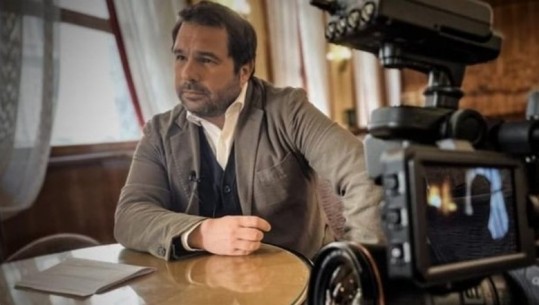

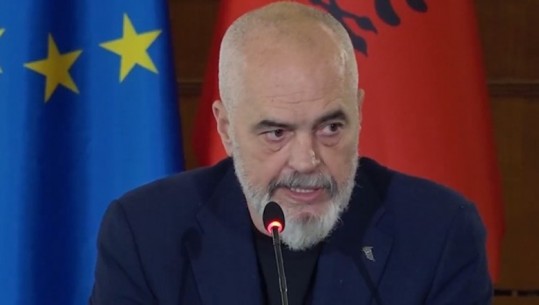
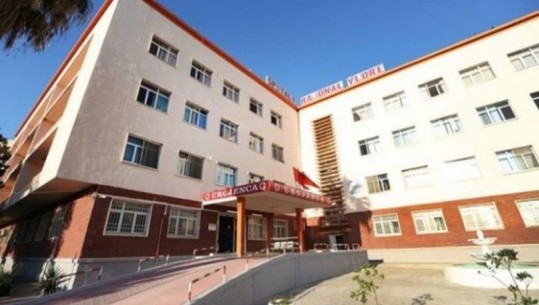
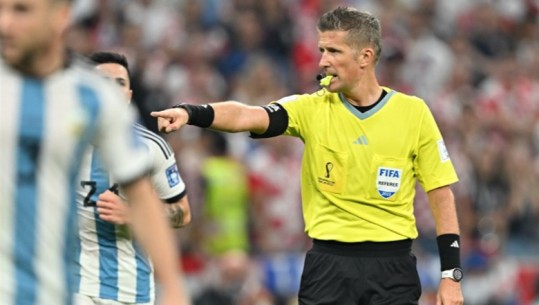
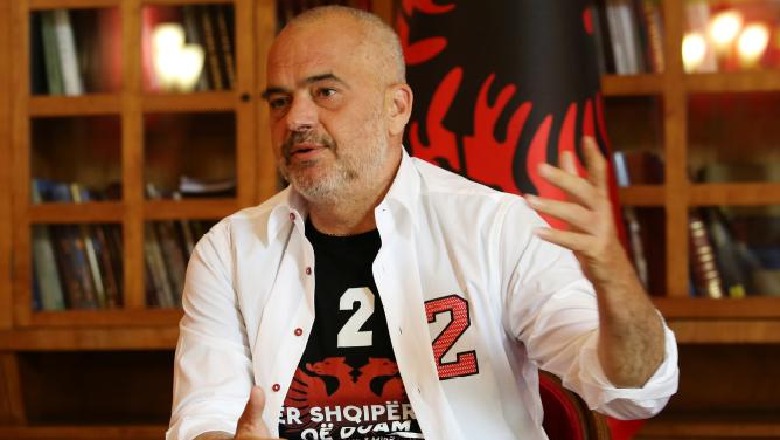

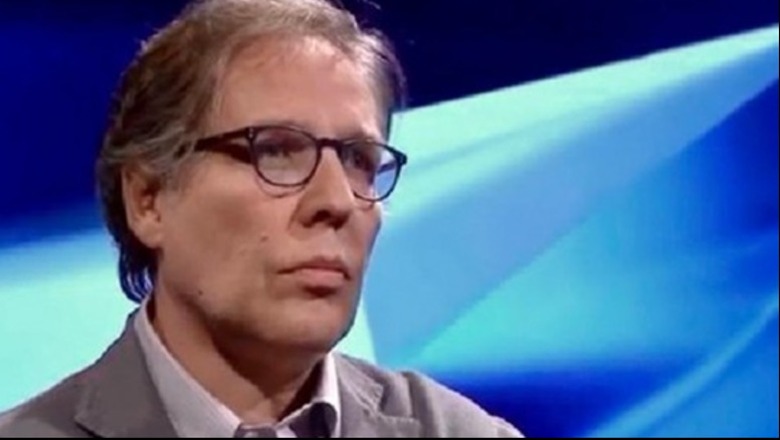
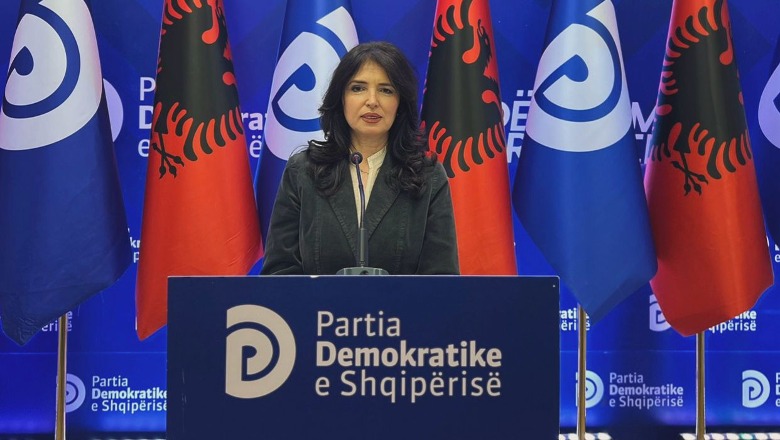
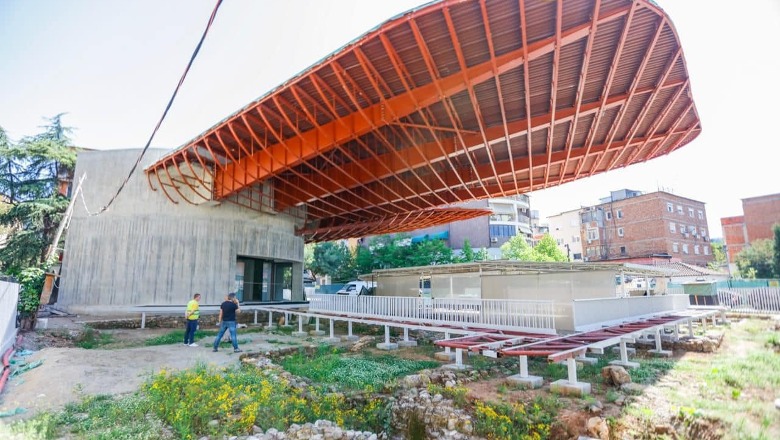


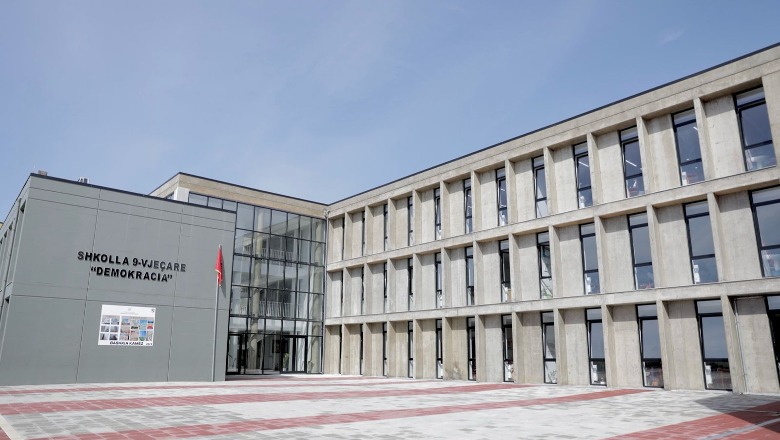
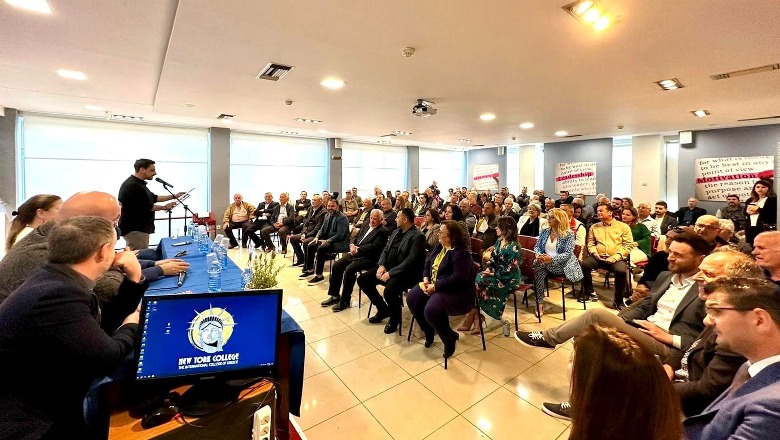

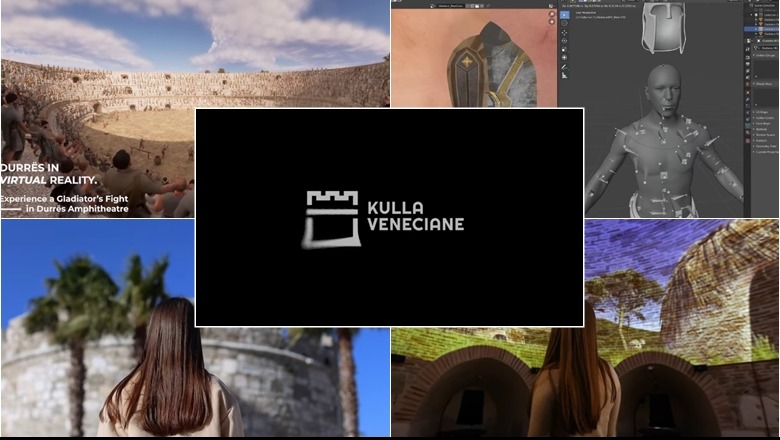
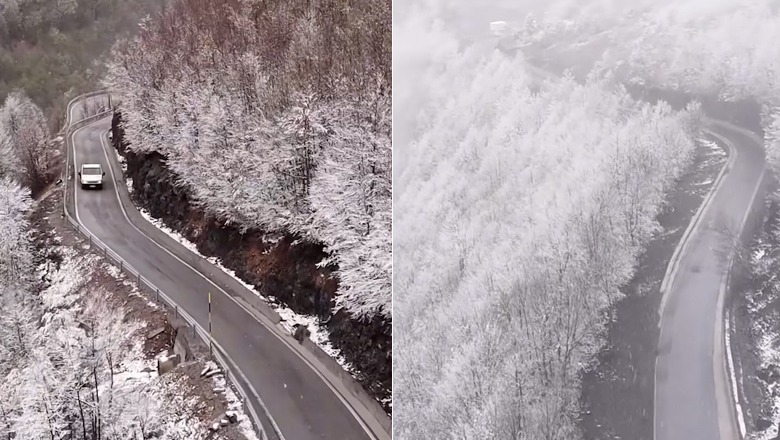
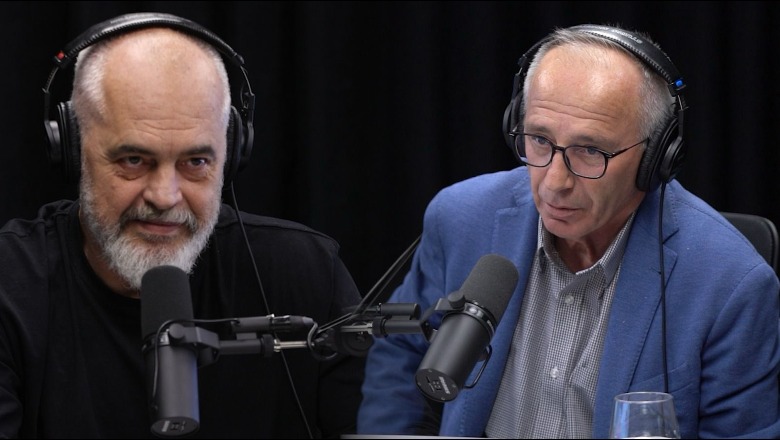
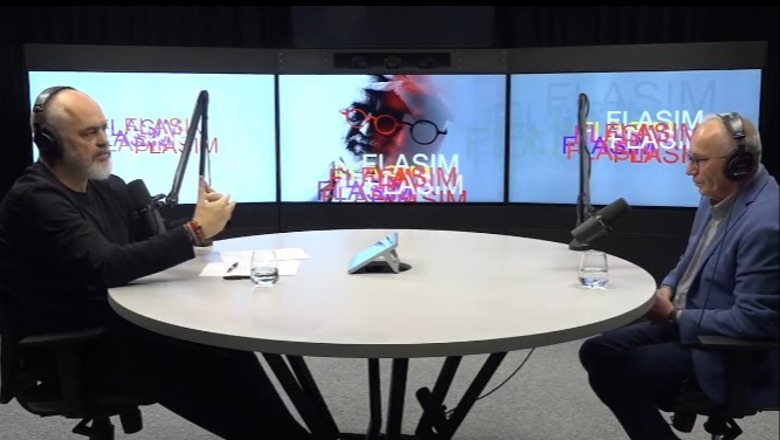

TE HAPESH NEGOCIATAT ME BE SOT DUKET SHUME ABSURTE ME NJE MINISTER DREJTESIJE I VLLAI I PERFSHIRE NE TRAFIKIM DROGE ME NJE POPULLSI QE SHUMICA DERMUESE ESHTE FUKARA
PërgjigjuPM on front line against Albania’s cocaine kingpins With an eye to joining the EU, Edi Rama is battling to crack down on the crime networks that dominate the British drugs trade Andrew Byrne, Tirana May 13 2018, 12:01am, The Sunday Times Edi Rama, Albania’s prime minister, has had a difficult week. He spent Thursday playing down reports that violent gangs of Albanians have seized control of Britain’s cocaine market, trafficking super-pure quantities of the drug that have been linked to a spike in violent crime. Days earlier, his former interior minister resigned to face charges of involvement in a criminal gang. The man who replaced him is also under fire over a family link to convicted drug dealers. For the prime minister who is trying to give his small Balkan country a makeover, the scandals could not have come at a worse time. They have stoked western concerns over Albania’s EU membership ambitions just days before a key summit on Europe’s Balkans strategy. When I meet Rama in his cavernous office in the centre of Tirana, the Albanian capital, the former artist is alone, slouched over his desk and doodling. Alastair Campbell — the former Labour spin doctor — has just been on the phone to critique his performance in a BBC radio interview. The bad press has clearly soured Rama’s mood. “Every country has its own criminals and we have our own criminals. But . . . if you look at the numbers of foreign criminals in UK prisons, there are other societies with higher numbers inside than us,” he said. “Don’t forget that the heart of organised crime is in western Europe where the wealth is, not here in Albania.” British criminals are responsible for the vast majority of crimes committed in the UK, but Albanian convicts are now the third-largest foreign contingent. The UK’s National Crime Agency has warned that Balkan gangs are increasingly working directly with Latin American cocaine suppliers and are prone to extreme violence. Rama admits there is a problem and has pledged to work closely with British police. But the idea that his country is a narco-state sheltering Europe’s deadliest drug lords is “a myth” he says — a stereotype that is now threatening its hopes of EU membership. “I’m trying to change perceptions, but it’s not an easy fight. We’ve suffered from a stigma for a long time. Foreigners still don’t really know Albania or, if they’ve heard something, it’s often not something good,” he said. Outside Rama’s office, Tirana’s narrow streets throng with gleaming Mercedes cars while new skyscrapers shoot up. Rama gave the city a facelift when he was mayor, painting bright kaleidoscopic patterns on the grey concrete buildings and planting trees along the city’s newly pedestrianised streets. It is almost unrecognisable from the Stalinist dictatorship of Enver Hoxha, who ringed Albania with electric fences and concrete gun turrets, turning it into a paranoid, isolated madhouse for 41 years. Under Hoxha, private property and religion were outlawed, only the ruling elite owned cars and the state even regulated men’s hairstyles. The fall of communism in 1991 left a turbulent and disorderly state in its wake. Few can say for certain where the money for the thousands of new cars and skyscrapers has come from in a country where the average monthly wage is £295. But many suspect that the proceeds of Albania’s flourishing international drug cartels play a role. In an ironic twist, Hoxha’s grandson is among those convicted of drug offences. Rama, who was both a prominent basketball player and a student dissident in the dying days of communism, lived in France as an artist in the 1990s and first entered government aged 34 as culture and sports minister in 1998 after Albania got a new democratic constitution. He made his mark as mayor of Tirana, 2000-11, and became prime minister at the head of a centre-left coalition in 2013. Since then Albania has become a full member of Nato and last month Brussels recommended starting negotiations on it joining the EU, possibly by 2025. Armed with the recommendation, Rama had planned to win EU leaders round to the idea of formal talks at a meeting in Bulgaria on Thursday, ahead of an EU summit in June. But the political winds have shifted against him. Enthusiasm for expanding the bloc has dimmed in western Europe and critics are demanding evidence that Rama is tackling Albania’s endemic organised crime networks. He has certainly tried. In recent years Albania became Europe’s main source of herbal marijuana. Cannabis plantations enveloped the countryside in 2014, covering up to 40% of agricultural land. The crop was worth up to £4.2bn by some estimates, about half the country’s GDP. Rama is credited with wiping out sizeable portions of the industry with a police raid in Lazarat, a no-go zone near the Greek border densely covered in the plants. In 2014 up to 800 police officers waged a battle with a local gang armed with mortars, machineguns and rocket-propelled grenades. Eventually the police torched the crop. Cannabis production has dropped precipitously since 2016, but some of it has been driven underground. More worryingly, gangs have graduated to harder stuff, redoubling their efforts at trafficking heroin from Afghanistan and saturating western markets with high- purity cocaine, depressing prices. “This scale of drug production and trafficking could not be done freely without support from government and law enforcement,” said Ylli Manjani, a former justice minister who claims he was sacked because he was investigating politically connected drug lords. Rama has introduced laws banning convicts from holding public office, prompting dozens of MPs and police with criminal records to resign. But critics say organised crime retains a grip on the political system, making a serious clampdown on the drugs trade impossible. Two hours’ drive from Tirana, in the flatlands of Fier, a policeman with an AK-47 guards Albania’s most unusual haybarn. Opening the steel door he reveals a wall of hay — but one sharp kick dislodges a clump that lands with a soft thud. Hidden behind the thin hay wall and below a hollow wooden floor is a massive cannabis factory under layers of heatlamps and ventilation tubes and lined with insulation foil. Police say the factory was designed for rapid-growth cannabis seeds, sourced from Holland, which produce plants in 45-day cycles. Seizures of factories such as this one show that Albania is getting serious about cracking down on the drugs trade, officers say. Critics dismiss the clampdown as a sham and say the European Commission has been too lenient on Rama’s government. “The EU are sleepwalking through these problems,” said Lulzim Basha, a former foreign minister who leads the main opposition party. Organised crime will endure whether the EU expands or not, Rama argues. But membership talks with Albania will put the country on a years-long crash course and impose strict tests for improving the police, the courts and criminal justice. “Criminals are fast and ruthless and they are more sophisticated than ever before. So we need to work together to stop them,” he said. “I don’t want to suggest that everything is OK here — of course not. But we need the EU accession process to help us in the fight against corruption and to build a new future. It’s the cure we need.”
Përgjigju